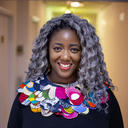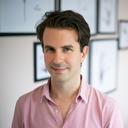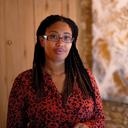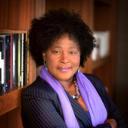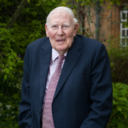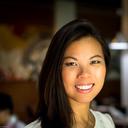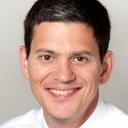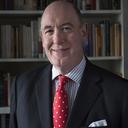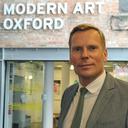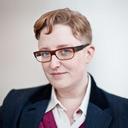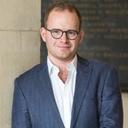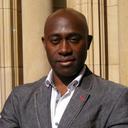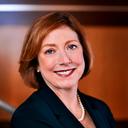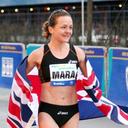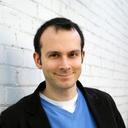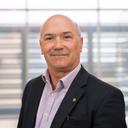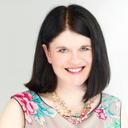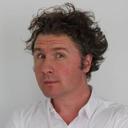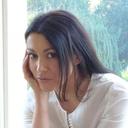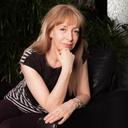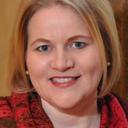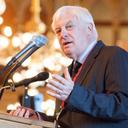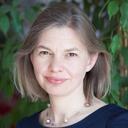VAL MCDERMID (ST HILDA'S, 1972)
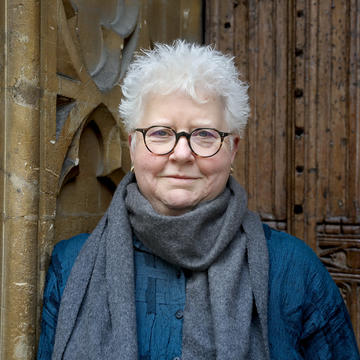
VAL MCDERMID (ST HILDA'S, 1972)
The celebrated author of more than 30 crime fiction novel talks about coming to Oxford, discovering the feminist community, her writing process and how the genre is changing
Published: 18 February 2021
Share this podcast
The Alumni Office's Harriet Packer interviews best-selling author Val McDermid (St Hilda's, 1972) about what it was like to arrive at Oxford as a 17 year old from Fife.
During the conversation, Val expanded on her experience of discovering the feminist community and realising her own sexuality was different from the hetero-normative society she had grown up in.
We also spoke to her in depth about what it is like to be a crime fiction novelist, her writing process, how she gets so much detail into her novels, how she feels the genre is changing, and the diffeence between male and female crime writers.
0:10 What made you decide that you wanted to come to Oxford University?
I grew up in Scotland. Very much working-class background. I spent most of my teens feeling that I was different; that I didn’t fit in. My school had a tradition of sending people to university, but the general view was that, if you were smart, you went to Edinburgh and St. Andrews; and if you weren’t quite so smart, you went to Dundee or Stirling. I’m not making that judgement – that was the judgement that was made on my behalf and I knew that somehow I had to spread my wings and seek a wider horizon: that meant going to England and the only place I knew anything about was Oxford. My sole experience of England up to that point had been a holiday in Blackpool for a week, which of course was the perfect preparation for coming to Oxford! I knew nothing about the application process. I sent off for prospectuses for the five women’s colleges and St. Hilda’s had the prettiest prospectus. So I applied, I came here, and I had an interview. They said, ‘We’ve never taken anyone from a Scottish state school before.’ and I said, with the sort of brass neck that you have at sixteen, ‘Well it’s about time you started.’ That was my start here at Oxford. It was a complete culture shock, complete break with the rest of my life. But it opened so many doors for me, and still opens doors for me all these years later.
1:29 Is there any sort of single memory that really sticks out in your mind, when people say what was it like going to Oxford?
I suppose I have a very strong memory of the Radcliffe Camera. Which is where I liked to work – there was a spot in the Camera that I used to go and sit at, it was my favourite seat. I think a lot of people have their favourite seats in their favourite library. I love the Camera, because it was sort of what I imagined an Oxford library should be. There were wooden floors and wooden tables and a sort of hush in the air, and books everywhere. I love the way the bays radiate off from the middle, like the spokes from a wheel, it felt like an atmosphere of studiousness, and of course, it’s such a beautiful building. Going to the Camera, you’d have that lovely approach, past St. Mary the Virgin, All Souls, and then there would be the Camera sitting there in the middle, looking remarkable. I was one of the privileged people who was allowed to go inside there and work. I did actually use the building in one of my novels, for a very final, dramatic scene in the book. I won’t say any more, because to say more would be a spoiler. But let’s say it’s an unconventional use for the Radcliffe Camera.
2:39 How do you feel that changed you, as a seventeen year old, coming to Oxford?
I was very excited coming to Oxford as a seventeen year old. I was lucky enough to have grown up in a household where I was inculcated with the belief that I was as good as anybody else. I did not arrive here with any kind of chip on my shoulder. I was convinced, I suppose, that I was here because I deserved to be. That made it, in a way, much easier for me. I had other people who were in my year who didn’t have that same sense of belonging, sense of having a right to be here and I think they had a tougher time. But I guess I breezed through the doors thinking, ‘Well these people have got the keys to the kingdom, and I’m not leaving till they hand them over.’ I saw it as a series of opportunities that I was going to grab with both hands. It wasn’t quite that straightforward however. I had, as I say, several elements of culture shock. For a start, nobody understood a word I said. What you hear now is what my partner calls my BBC Radio 4 Scottish accent. But I come frae Fife, and ‘nabody kent what I was saying’. I went for my first tutorial and started reading my essay on Gerard Manley Hopkins, The Wreck of the Deutschland and the wonderful Anne Elliot said, after a couple of paragraphs, ‘I’m most terribly sorry, Miss McDermid, but I haven’t understood a word you’ve said. Might we begin again and perhaps a little more slowly this time.’ So first thing I had to do was learn to speak English. And everything was strange – even the food was strange. You know, back in Scotland in the nineteen sixties and seventies, we only had three vegetables and there were all these things that kept turning up at the dinner table, I had no idea. Sometimes I wasn’t sure if it was a table decoration, or whether it was food, so there were all these things to overcome. But I think I was very lucky; fortunate choice coming to Hilda’s, because it always felt very egalitarian. It wasn’t cliquey, it wasn’t like the girls who’d been to the public schools didn’t talk to anybody else. It just seemed to be very open.
4:38 You said when you were obviously younger, you’d been inculcated with that belief that you were just as good as everyone else. Who did that come from?
The person who really gave me my set of beliefs about my own person worth was my father. Although he was an ordinary Scottish working man, he worked in the shipyards; later he worked for the town council, he was a great lover of our national poet, Robert Burns. At that time, there were a lot of working-class Burns clubs around Scotland so he would go every couple of weeks to the Bowhill People’s Burns Club. Which was essentially a group of working men who sat round, discussed business matters of the club and then they would have a pie and a whisky, and then they would have recitations of Burns’ poetry. They would sing Burns’ songs and discuss the views in the poetry – freedom and equality and lassies, obviously. But I think that gave my dad that sort of belief that we’re as good as anybody else, and he passed that on to me.
5:43 Do you have a favourite piece by Burns that you always go back to in your mind, that really reminds you of your father?
My father was a singer and he was the lead tenor of the Bowhill People’s Burns Club. During the months of January and February, around Burns Night, they would go to all sorts of organisations and old people’s homes and Masonic Lodges and perform at their Burns suppers. I can always remember him singing the very wonderful song, Ae Fond Kiss. ‘Ae fond kiss and then we sever; Ae fareweel and then forever’ and so on. That, even now when I hear that, it does bring a tear to the eye. That’s terrible – I’m the hard woman of Scottish crime fiction, but you know, I have a soft spot.
6:28 You said in previous interviews that there wasn’t a sense of a non-hetero community growing up in Scotland. How did you find that when you came to Oxford?
When I grew up in Fife in the 1960s and the early 70s, there were no visible lesbians: you were as likely to see a unicorn as you were to encounter an out lesbian. I didn’t really have an awareness of any kind of sexuality that wasn’t heteronormative and if you don’t see that, if you don’t see a template for that, it’s very hard to imagine yourself as being that kind of other. I read the Well of Loneliness and I thought, ‘Well I don’t want to be called Stephen. I don’t want to wear men’s clothes. I don’t want to kill myself. So obviously I can’t be a lesbian.’, so I came to Oxford, and I gradually became aware that there was an element of difference that was possible. But I think what really transformed it for me was the discovery of feminism. I was in my second year, and somebody gave me a copy of Kate Millett’s Sexual Politics, which of course is a book of literary criticism. But it’s also, for me, an introduction to feminism. I devoured this over the course of a weekend. I was completely on fire; it was like my head had exploded with the whole idea of looking at works of literature from a completely different perspective. Seeing them through this different lens transformed not just the way I looked at books, but the way that I looked at my own life and I realised that there were possibilities there that I could explore, that I could have a different set of options. Through the feminism, I met the lesbians. That kind of made it very clear to me where my desire lay. Where, I suppose, a sense of coming home.
8:29 You came to Oxford and discovered the feminist community, and within that who you wanted to be as a person how did you find that development?
When I first understood that I was a lesbian, I found it quite...it was double-edged sword I suppose. It was extraordinarily liberating. It was a wonderful moment of recognising myself and understanding what my place in the world was. But there was also a really quite frightening aspect, of thinking, ‘Well how do I fit in with the rest of the world around this?’ Back in the mid-seventies there was still huge prejudice against gay and lesbian people, it was not particularly easy to be out; but equally, I was determined that I wasn’t going to hide myself. There was always that balancing act of being yourself, but not as it were, making it the first thing that people knew about you. It was difficult – I lost friends when I came out. People that I had been friends with for two, three years at Oxford, who just didn’t want to know. I don’t know if it was because they felt uneasy or whatever it was, but they stopped being my friend, and that was difficult.
I went off from Oxford into the world of work. I was a journalist initially in local papers and then most of my journalistic career in national newspapers. That was a hard enough place to be a woman in the 1980s, never mind to be a lesbian. I felt it had been such a long road to get that far, I wasn’t going back now and I was lucky, I suppose, in that my family were completely matter of fact about my sexuality. It was regarded as being not news in the slightest, and nobody was bothered and life just went on as before. But it was always that thing of when do you tell people, when do you let them know, how do you broach the subject, how do you be yourself? Those things, I think, were much more difficult then, than they are now. I think it’s wonderful now that we are in a very different environment, where people can explain their sexuality, explain their gender, without everybody recoiling in sort of fear and horror. I think it’s always the way that ignorance is what breeds prejudice. Now people know that, you know, we’re not going to do terrible things, we’re not going to eat their babies, or you know, like frighten the horses, we’re just like everybody else. The only thing that’s really different is who we choose to go to bed with and that’s really not such a big deal. I don’t think I do the shopping in a particularly lesbian way. I don’t think I do the laundry in a particularly lesbian way, or empty the dishwasher in a particularly lesbian way. There’s so many more things that unite us than divide us and that’s something I think that has become a much broader understanding in society now.
11:46 Do you think if you hadn’t come to Oxford, it would be completely different for you?
I think my life would be different in almost every respect if I hadn’t come to Oxford. It’s not just about discovering feminism, discovering the lesbians. I would probably have found them wherever I’d gone at some point or another. But more than that for me I think, being at Oxford, being at Hilda’s, opened so many doors for me. Some of them directly, some of them indirectly. It was things like the very first play I had performed – I took it to the local theatre in Plymouth, where I was living at the time, because I was working down there and the director of the theatre was the ex-boyfriend of the sister of my best friend at Oxford. Immediately I had an entrée, I was somebody that he was going to take a little bit more seriously than just anybody who walked in off the street. When I wrote my first crime novel, I knew I wanted to send it to one of the feminist publishing houses and it so happened that someone I’d been at Oxford with was sharing a flat in London with someone whose girlfriend worked at the Women’s Press, so she was able to put my manuscript in the hands of the right person to read it. These are just little things along the way. I grew up in working-class Scotland, I didn’t know anybody in publishing or the arts. I had no way of knocking on those doors until I came here and I started to meet people who had connections in the world that I wanted to move in; and still it’s the case. I mean, there are still times when if I’m doing a bit of research for a book or something, I think, ‘I need to know about such and such.’ And I think, ‘Oh I saw somebody in the news recently and she was a Hildabeast.’ And you just ring up and say, you know, ‘I was at Hilda’s too.’ It’s a connection, it’s a bridge, and it still works. It functions.
13:40 You’ve now written more than thirty books.
I don’t quite know how that happened.
13:45 Does it get easy now, do they roll out, because you’re now producing one a year almost?
Early on in my career I met Ruth Rendell, who was one of my absolute heroes and in many ways, I feel that Ruth Rendell paved the way for writers like me, who didn’t want to write just one series of books featuring the same detective all the time. Ruth wrote different kinds of books. That opened the door, because you could say to publishers, ‘Well Ruth Rendell takes her readers with her.’ Anyway, first time I met Ruth, I was all fangirl. I was completely incoherent, and what do you say after you say, ‘You’re wonderful, and I love all your work’? and I said, ‘I suppose when you’ve written as many books as you have it gets easier.’ She looked at me as if I was very slow and very stupid, and said in that very particular Ruth Rendell way, ‘No dear, it gets harder.’ I didn’t really understand that at the time. Because I thought, ‘Surely, the more you do it, the more accomplished you become at the nuts and bolts of the craft.’ and that is true to some degree. But if you have a commitment to trying to become a better writer with every book, those little incremental steps of trying not to make the same mistakes you’ve made before, trying to find a better way of doing it, a more economical way of doing it, it actually becomes more challenging the longer you do it. So when I sit down to write a new book, I’m trying to say something I’ve never said before. I’m trying not to cover ground I’ve covered before, and I’m trying to do it better than I did it before. So that’s always the challenge. I remember Reginald Hill saying to me, ‘You sit down, every time you sit down to write a book, you’ve got this platonic ideal in your head. This is going to be the book where the story flows beautifully and smoothly, and every twist and turn is perfectly calculated. And the characters are appealing and interesting and the readers really care about them. Your style flows like a river through the book.’ He said, ‘And every sentence you put on the page takes you further away from that ideal.’ And I know exactly what he meant by that. I mean, you sit there and you think, ‘I know what I want to say’ and you find yourself side-tracked into saying something different. You think, ‘Do I mean to keep that in? Do I not?’ It doesn’t get easier. But I suppose what does get easier is that you know you have a certain number of tools in your skill set that will let you get past the difficult bits: the days when it’s really not working. I remember somebody else saying to me, ‘Some days it’s like carving granite with a teaspoon.’ and it does feel like that some days. Some days it’s like the most miserable thing in the world – you’re just sitting there, struggling with the words and it’s really not coming. But then, so many other days it’s flowing, and your ideas are powerful and you can read back what you’ve written and think, ‘You know, that’s not actually that bad.’ I still love what I do – it’s the best job in the world. I’m unemployable really, so it works quite well for me, that I can sit in a room and be by myself. Instead of have to sit in a room with other people and want to swear at them.
16:57 How do you get that level of detail into your novels?
I find the easiest way to write authentically about investigations – in general, to write about anything – is to talk to people who do it for real. If you go to the internet or to the library with a specific question, you’ll get an answer to it, but that’s all you get. You won’t get an answer to the question you didn’t know to ask. A couple of books back I needed to know bus timetables in Glasgow in the 1990s, so I put out a call on Twitter and I met this guy who knew everything about Glasgow public transport ever. But just that encounter with him made me ask questions that I didn’t know I could get the answer to give you that richer texture. When you go to people who are experts, they don’t just tell you what you need to know and they tell it to you in such a way that you can draw facts from, or draw experience from them : they’ll tell you an anecdote about something funny that happened in the lab; or something that one of their colleagues did that was really stupid and embarrassing; or they’ll tell you about an incident on another investigation that you file away and think, ‘I’m going to use that.’ That process gives you, not just the facts, but it gives you a texture to the facts and that’s how I essentially do it. The other thing is not to become obsessed with the technology, with the science, with the procedures. Most of that stuff, I think you don’t need to give people more than three facts about anything, you know and that’s been my general principle through life. Give me three facts and I’ll talk for half an hour on any subject. Don’t overload it with the facts; don’t fall in love with the technology. The book must never be about the technology or the procedures. It has to be about the characters. If you make it about the technology, when the technology has moved on, the book’s dead. But if that’s just an incidental aspect of the book, and you’ve done it in such a way that you make it feel human, then it has that reality, that authenticity that carries it over the fact that things change and are no longer the same. My Lindsay Gordon books, that I wrote in the late 1980s, early 1990s, have never been out of print since they were first published and the second one of those, Common Murder, hinges on very early computer technology. Back in those days, computer programs came on cassette tapes and that was a crucial turning point in the plot. But, because I didn’t make a big deal about the technology, people read that now and just go like, ‘Oh yeah, that’s how it was back then.’ Because the book is about the characters; it’s about their journey through the events that are traumatic and life-changing for them.
20:34 How do you feel the crime genre has changed, or is changing?
I was lucky that I started writing crime fiction at a time when the genre was going through quite a radical shift. Up to the point where I was starting, really in the UK, in the early 80s, there were only police procedurals and village mysteries. Then there was a new wave of American feminist crime fiction, led by writers like Sara Paretsky and Sue Grafton and Marcia Muller, Barbara Wilson and British publishers wanted something comparable. So when I wrote my first novel, I was kicking at an open door in that sense. What also happened round about the same time was writers started producing novels that were set outside London, escaping from the metropolitan Scotland Yard model – you had people like John Harvey writing about Nottingham, you’d Ian Rankin writing in Edinburgh. I was writing books that were set in the North of England. The genre gradually, over these last thirty years or so, has become quite different. It’s become very expansive. You can write really any kind of novel – you can write a high concept thriller, you can write a legal novel, you can write a novel where the bad guy is at the heart of it. There’s all these different approaches. I’ve found that I can tell any story and go into any environment that I want, and stay within the frame, the broad frame of the genre. By its nature, it is a great vehicle for any kind of social commentary. Because in the course of the crime novel, you touch lots of different social strata, lots of different worlds. You’ve got the victim and their world, with their family and their employment and their friends. You’ve got the witnesses and their worlds. You’ve got the investigators, whether it’s police or private eyes or amateurs. You’ve got the forensic scientists, you’ve got the media who are involved in the case. You can really go from the highest in the land to the lowest in the land without straining at it. Whatever you want to write about is now available to you as a crime writer. I think that’s one of the reasons why the genre has become so popular. It’s now the most popular genre of fiction in the country. Every year I host the new blood panel at the Theakston’s Old Peculier Crime Festival in Harrogate. I read maybe fifty or more debut novels, and I choose the four that I find most interesting to showcase at the festival. Every year, I am astounded by the quality of these new voices, doing different things, writing about different subjects. Just the diversity of it, it’s very, very exciting. So I think for readers who enjoy this kind of book, there is something for everybody. But also there is a constant, constant parade of new writers. But also a steady sort of cohort, if you like, of people who’ve been doing this for a long time and really know what they’re doing. So you know when you pick up one of their books that you’re in the hands of somebody who is a master or a mistress of their art.
23:56 Do you feel that there are key differences between the way that men write crime fiction and women do?
I think there are some differences in the kind of crime fiction that women write and the kind of crime fiction that men write. I think that some of that is to do with the way that we are brought up. The understanding of the world that’s drilled into us as small children. We learn very early on, as girls, that we don’t get what we want by confrontation. You don’t fight for something you want – you find a way of, I suppose, what the Buddhists call subtle means – some might say manipulation or deviousness, to get what you want. You don’t go straight in your face with it. Whereas little boys learn very quickly that if you want something, you take it – you fight for it, you go for it. That’s simplifying to some degree, but that’s kind of how we grow up with the mindset. I think in that respect, women by and large are better at writing more convoluted plots, more digressive, labyrinthine plots; whereas men’s writing tends to be much more linear. There are some notable exceptions to that in both directions.
The other thing, and I think this is quite an important thing, when we’re little girls, we’re taught to be afraid of the world. We’re taught that we’re potential victims. People out there will do bad things to us. Don’t go down the dark alley by your own at night. Don’t walk home alone. Don’t do this, don’t do that – it’s dangerous. Don’t be this, don’t be that. Boys don’t grow up with those messages. Boys grow up with a very different set of messages, so they don’t expect to be victims. They don’t think of themselves in the world as potential victims. I don’t think there’s a woman out there who hasn’t walked home late one night and heard footsteps behind her, and immediately flashed forward to all the terrible things that are about to happen. Men don’t think like that. So when women write about violence, they write about it as something they have imagined many times. It’s something they have thought about. It’s something that has made their heart beat faster, has made them pound with adrenaline, because they understand what it’s like to be on the receiving end of it. Men approach violence in a very different way. Violence is something that’s quite exciting. Most men, and again there are some notable exceptions, write about violence from the outside – from something that you’re experiencing looking at it, rather than inside it. I think that’s one of the reasons why women are accused of writing more violence against women than men, because, when we do it, we do it really well. Because we’ve imagined it; we have been there, we have been in those shoes.
26:57 Was that something that actively played on your mind when you began to write in this way?
I don’t think it actively played on my mind when I started out writing. I don’t think I was thinking of myself in those terms. But as I’ve spent more time writing within the genre, but also considering it from a critical perspective, and talking about it. Which is the other thing – these days you are supposed to be able to talk about what you do. These things have emerged to me as self-evident in my work and in other people’s work. What I try to do to counterbalance this ‘women as potential victims’ thing is that I always have strong female characters with agency in my books. I have women who are independent, who are self-reliant, who are tenacious. That, for me, is the sort of countervailing element that I suppose speaks against the assumption of women are just victims. Because they are so much more than that.
28:04 Do you think there’s any way that we’ll ever get away from that?
I don’t know that we’ll ever escape entirely from that mindset, until we stop bringing up girls and boys in these very different, polarised ways. But as I say, I think there is an onus on mothers to bring up their sons, and their daughters, differently. I don’t want to see the next generation of women being conditioned by the fear of what bad things might happen to them, any more than I want the next generation of boys to be the ones that imagine engaging in violence.
28:38 Our final question is: how has Oxford changed you?
Oxford changed me because it opened so many doors that would not have opened for me otherwise. I grew up in a working-class town, in Fife, the options open to me were relatively limited. Fife is a very particular region of Scotland. Fife is a region that was very geographically isolated. You had the Firth of Forth to the south, the Firth of Tay to the north. You actually had to want to go to Fife. So it was a place that was politically quite radical, but socially not. I went to school in a school where the prevailing thought was – you went to a local university, and then you came back to Fife, so most of the people I went to school with are still there. I knew that I wanted a wider horizon than that. Coming to Oxford gave me that wider horizon. It gave me possibilities that would not otherwise have come into my purview at all.



